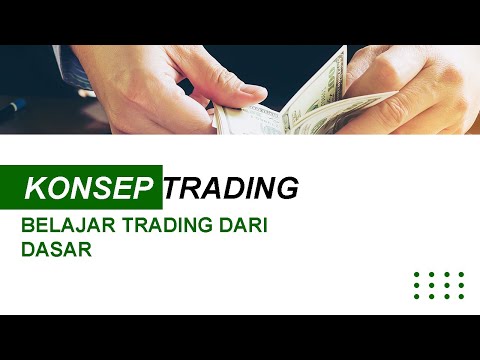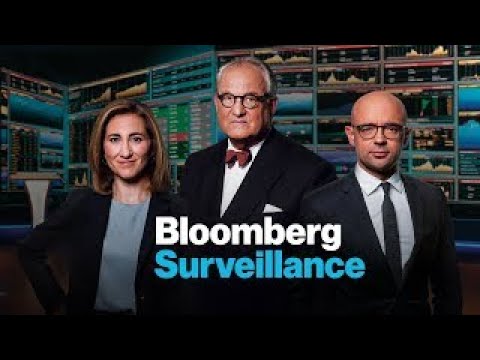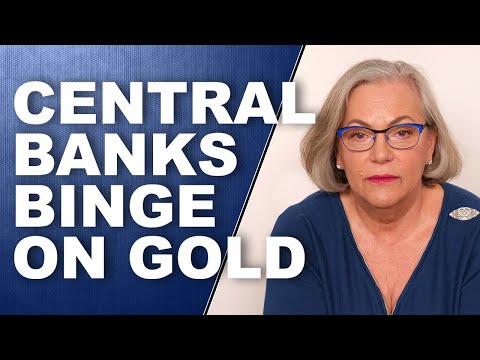Belajar Trading Dari Dasar || Learn Trading from Basic

Money changer in a country it's back to bank the central bank Each country has a central bank The transaction of each money changer it's gathered in the bank Bank Indonesia is the one who exchange to the bank outside Assalamualaikum, sir. -"Wa'alaikumsalam" Do you get any overview? Or at least a feel? Like trading definition, then the potential of the market "It's clear. Because we discussed the basic things" "Like the explanation of market, source of it, then the chart" "We already discussed the candle too" "Yesterday, I got an overview to analyze and know the probability" "From the start until yesterday, I got what I mentioned before" That's what we should think Don't just find a valid, accurate, and profitable We only read to find the highest probability which means higher profit potential than the loss I don't recommend you to just focus on technical but more to risk management Even a high accuracy analysis still can turn Remember, we don't determine the market but it's controlled by many banks especially big banks. Why?
Actually, trading is for banks, not traders Since there's potential, traders appear and join It's not between traders, but between banks Each country needs currency USD is a currency that's recognized by many countries for trading The one who needs it is country, not just a person Money changer in a country Money changer in a country is back to bank back to the central bank Each country has central bank Each transaction of money changer it's gathered in the bank. Bank Indonesia is the one who exchange to the bank outside Actually, banks are the ones who do trading Not just one bank, but a gathering of some players There's money changer, investor There many of them, including entrepreneurs Big entrepreneurs which companies do exports and imports need much dollars For example, he sells palm oil He exports it. So, small sellers have big collector or we can say broker This exports to a place, say, Germany So, he gets USD from Germany In Indonesia, he can't use this, so he exchanges it If we want to use it, it must be exchanged, USD to rupiah. It's a transaction So, he sells dollar and buy rupiah There are so many entrepreneurs in Indonesia There's oil, palm oil, coal, and etc. All of them are related
That's just 1 sector. There's electronic entrepreneurs There's engine entrepreneurs. All of the products are sent from other countries Rupiah can't be used in other countries So, we must exchange it to money changer or bank Big companies would need billions of dollars It means rupiah must be changed to dollar. So, the request for dollar increases If the dollar request increases, the price also increases Some people say that this is a gamble It's because those people don't know the details Some people say that some win and some lose In trading, there's no win or lose, but profit or loss Their mindset is just win or lose If one wins, the other one loses For example. A wins, then B surely loses It's for the gambling mindset It's not business. Business has profit and loss
If gamble, we don't trade it Like lottery, what do we buy? It's abstract numbers In trading, there are pairs, like Euro and US Dollar XAU and USD There's pair. The price is approved internationally. You may check the price in banks, it's the same There are 2 transactions that are recognized It's unseen but it's approved. I'll give an example I buy a handphone online Before I buy, I choose one then transfer the money When I transfer the money, he doesn't see it, but it's in his account It means he can cash it Let's go back to win and lose In trading, there's no win or lose, but profit or loss I'll give an analogy so we don't think about win or lose Let's use chicken meat for an example In a conventional market there are so many merchants There are A, B, C, and D merchants Say, the normal price of chicken is 20000 rupiah The price on these merchants are not the same 20500, 21000 19500, 20000 These 4 prices are not the same. You may check the nearest market
Why? They have their own way to make people interested and take profit There's chicken price of 19000 There's 20500 People are free to choose it They can choose what they like The customers are us, traders Meanwhile, the merchants are like brokers Brokers sell with different prices. Surely there's difference We're the ones who choose the broker we like For example, I choose the 20000 price, so it's here I buy it for 20000 Meanwhile, there's cheaper price, 19500 Do I lose? No, because I need it The merchant who sell for 20000, he get profit, not loss Maybe he bought it for 19000 Then, someone buy here, the 19500 one For example, X buy for 19500 Does the merchant get a loss when people buy it for 19500? No, because maybe he bought it with cheaper price Maybe he bought it for 18000 Or he has a farm, so the price is cheaper So, he can sell with cheaper price. So, it doesn't mean a loss Same as the buyer, he gets cheaper price These 2 have different affairs This one is cheap because he bought cheap. This one because he has a farm Let's go back to the big market If I make analogy of it, there's A, B, C, and D banks Then, there's importer The exchange rate in Bank A is 14200 Bank B is 14600 This is 14300. This one is 14800
Each bank has its own policy to determine the price because the price is added with the profit Say, an importer wants to buy spare parts from another country It's a big importer and it can't be made in the country, he buys it from another country From US and Japan. Each has its own affair In order to get the products from here he must buy with USD because rupiah can't be used The standard is USD. So, he must exchange it Exchange anywhere, he's free to find the price Expensive or cheap, he's free to choose If I choose the Bank D, the 14800 rupiah The importer doesn't get a loss because he needs it Second, maybe he's a long customer there Maybe there's cashback, bonus, or else Meanwhile, maybe the service is bad or the stock isn't enough He's free to choose Buying at a high price doesn't mean a loss If the product arrived, we sell with this exchange rate plus profit The burden is for the customer Will the customer get a loss? No, even though there's high exchange rate If we think about win or lose, it's too narrow We wouldn't be able to read trading world widely It looks like an online transaction There are many aspects in details There's trading that's done by online Same as e-commerce E-commerce is online, including hotel booking and else Online doesn't mean unclear It's in our account, which mean can be cashed too Same as trading, it's also can be cashed It doesn't have to be visual but it's in our account, so we can cash it So, if we think about win or lose, it's too narrow In 1998, if I'm not mistaken There was monetary crisis The icon of it was George Soros He's a speculator. He had money and bought all of the dollars So, dollar became rare When the dollar was rare, he sold the dollar The exchange rate was around 2000 or 4000, not even 10000 After that, it raised to 17000 rupiah per dollar Why? Because the dollar was in his hands Like chicken, he buys all the chickens Then, the speculator hold it Automatically, the stock in the market is reduced Meanwhile, the needs keep running It's like, "I have the stock, but it's expensive" The product is rare, but he holds it Then, he publishes it when it's rare So, he's free to determine For example, I sell 15000 rupiah per dollar If you want it, I'll sell it When a person really needs it, he'd buy it even if it's expensive For example, Indonesia needs oil They need oil for their domestic needs The local oil couldn't fulfill their needs Since they need fuel and else, they must import oil In order to buy it, they need USD USD is rare, and he's the only one who has it Because people need it, people must find it The one who get a loss is bank At that time, Bank of England suffered big loss They loss around billions of dollars Traders didn't lose, but bank Bank is the central of money That's for the mindset so we can be sure of it Focus on the process, not what bothers us I'll continue Let's discuss about trigger First trigger is candle pattern We already explained it Second is changing color Not just changing color, it must be at the peak or at a psychology level At a peak or psychology level It's for changing color. I'll give an example To be continued....
2021-09-02 11:13


